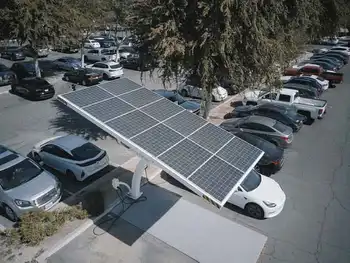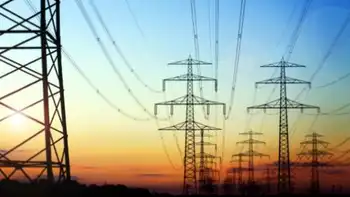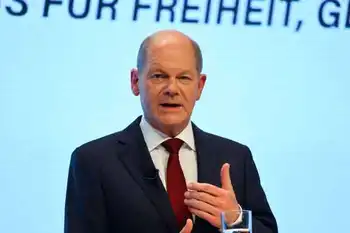Committee hears from Montana electricity companies
By Great Falls Tribune
Protective Relay Training - Basic
Our customized live online or in‑person group training can be delivered to your staff at your location.

- Live Online
- 12 hours Instructor-led
- Group Training Available
The state's dominant electric utility, NorthWestern Energy, and a rural electric cooperative, the Billings-based Southern Montana Electric Generation & Transmission Cooperative, crossed swords over a dispute with its roots in the 2007 Legislature.
Montana Public Service Commission Vice Chairman Brad Molnar expressed little sympathy for either NorthWestern or Southern Montana, which he termed "two monopolies." NorthWestern Energy answers to stockholders and Southern Montana officials "have their interests as well," he said.
Molnar, however, expressed sympathy for Great Falls residents who "should not be subsidizing anybody," he said. "The taxpayers of Great Falls cannot fight back."
At issue was House Bill 104, which Rep. Robyn Driscoll, D-Billings, contended would clarify ambiguities left over from 2007 legislation.
Four years ago, HB25 set an Oct. 1, 2007, deadline for most commercial energy customers to decide whether they wanted to buy energy from an independent electricity supplier such as the city of Great Falls, or the default supplier, NorthWestern Energy.
Since then, one of the city's customers, Benefis Health System, built a new South Tower at its east campus that required new electric meters. Benefis and the city assumed the city would be allowed to provide new meters to Benefis, since the hospital was a longstanding customer.
But NorthWestern Energy insisted it would be the one to provide the new meters. The PSC refused to intervene on the city's behalf.
The city of Great Falls sued NorthWestern and the Public Service Commission in state District Court and District Judge Kathy Seeley of Helena ruled in May 2010 the city had the right to provide new meters to Benefis.
At a recent hearing before the House Federal Relations, Energy and Telecommunications Committee, NorthWestern official John Fitzpatrick referred to "the same cast of characters out of Great Falls" trying to "hijack" NorthWestern customers to help pay for a power plant east of Great Falls.
Fitzpatrick said sophisticated businesses sometimes want to shop around for the best power deal, while "those that are left behind end up paying more," notably residential customers.
"We've got people that want rewards but they don't want to take any risks," Fitzpatrick added, predicting Benefis Health System in a few years will come crawling back to NorthWestern, demanding to be taken back as a customer at an average rate.
Dawn Willey, a Benefis spokeswoman, said the hospital does not plan to ask NorthWestern to take the system back as a customer.
Al Brogan, chief counsel for the PSC, claimed the city of Great Falls and Southern Montana Electric, the city's wholesale electricity supplier, should not be able to use fuzziness in the 2007 legislation to defy the wishes of the Legislature.
Siding with NorthWestern and the PSC at the hearing was Great Falls City Commissioner Mary Jolley, who called the city's entrance into the power business "an unmitigated calamity."
The city's electric energy debts stand at about $4 million, noted PSC Commissioner Travis Kavulla.
Several opponents at the hearing contended HB 104 amounted to dirty pool. Brett Doney, president of the Great Falls Development Authority, said the bill would amount to "changing the rules in midstream" and its passage could hurt area businesses.
"We want to keep these companies in Montana," Doney said. "It's not their fault that the city has lost money. It's the city's fault."
Tim Gregori, general manager of Southern Montana, called the bill an attempted "end run around an unfavorable district court ruling."
Gregori maintained only a small amount of electricity is in dispute and argued that having Benefis served by two different utilities at once — Electric City Power and NorthWestern Energy — "just simply doesn't make sense."
If House Bill 104 fails, the meter issue probably will be resolved by the Montana Supreme Court. Brogan said briefs in the case are due to the high court by Valentine's Day.
Great Falls City Attorney James Santoro said recently Benefis and Southern Montana remain active in the case, but the city filed papers saying it would take no position in the matter, on instructions from city commissioners.
Relations between Southern Montana and the city of Great Falls turned frosty during the last year as the City Commission moved toward trying to leave the energy business.
The legislative committee did not immediately give House Bill 104 a yes or no recommendation.











